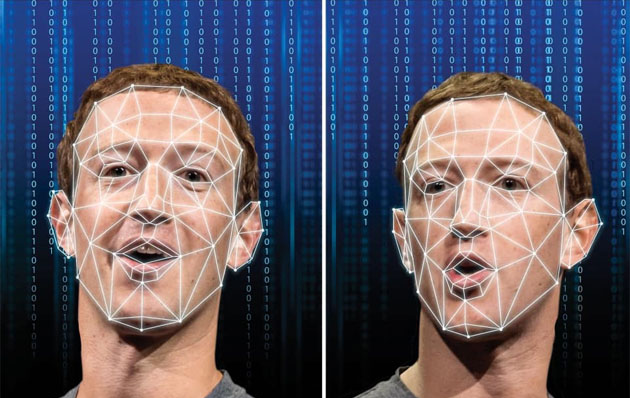The world of deepfake advertising is coming this decade

Deepfake video of Facebook CEO Mark Zuckerberg was circulated in 2019, drawing attention to the potential of the technology. Image credit: Flickr
In summary
- The world of deepfake advertising is coming in the next decade
- The technology will allow marketers to personalise ads to every single consumer
- Deepfakes could be intentionally, obviously fake to protect brands from reputational damage
Manipulated advertising is becoming an increasingly prevalent phenomenon in marketing. Techniques such as deepfakes leverage AI and machine learning to generate convincing, true-to-life, synthetic replicas that are nearly impossible for consumers to detect.
New Swinburne research reveals how deepfakes are likely to be used by companies and marketers in Preparing for an Era of Deepfakes and AI-Generated Ads: A Framework for Understanding Responses to Manipulated Advertising.
What’s clear is that the world of deepfake advertising is coming. Researcher and co-writer of the paper, Professor Sean Sands, says, “It’s likely that deepfakes will be widely used in mainstream media within a decade.”
Deepfakes are already here – just not widespread
To date, content produced by synthetic methods is mostly user-generated, often by technologists showcasing their AI prowess by training AI to swap faces or voices of very different actors or politicians. Much of this user generated content is obviously fake. The producers’ intentions are less likely to fool, mislead or trick audiences, but to create humour and demonstrate the potential capabilities of this emerging technology.
Advertisers will be capable of producing deepfakes indistinguishable from the real thing – including deepfakes of ourselves in advertising – although experts say there will be benefits to steer away from being too real or accurate.
Will the future of deepfakes scare or excite people?
Researcher in digital innovations in marketing and advertising, Associate Professor Colin Campbell says brands could personalise ads to every single consumer, at a scale never seen before.
“Imagine ads that skip the model entirely and show you wearing the clothes – something similar to the futuristic ads in the 2002 film, Minority Report,” he says.
“It’s a concept that may prove too intimidating for many consumers. There is an abundance of research that shows greater positive effects when consumers see people like them in ads. Brands could tailor ads by serving up a deepfake model matching your exact ethnicity, height, wearing clothes similar to what you’ve purchased previously or liked online, standing on a street near your home or workplace using data extracted from social media, retail sensors or loyalty programs.”
The research shows that these personalised ads could lead to more sales and improved reputation for brands, so long as they don’t cross over into hyper customer surveillance – leading to privacy concerns and feelings of vulnerability from consumers.
Deepfakes might look internationally, well… fake
Researcher in innovations in retail and social media, Professor Sands, points out that just because we can make deepfakes indistinguishable from the real thing, doesn’t mean we will when it comes to advertising.
“Marketers will strive to create ‘authentically human’ deepfakes to seem ‘real’. But we also have research that suggests consumers can be more forgiving of obviously virtual influencers. Some businesses may strive to make the fact a deepfake is fake known, so their consumers may be more forgiving of their transgressions.”
-
Media Enquiries
Related articles
-

- Technology
- Education
- Science
- University
New Australia-India joint research institute to advance energy, communications, materials and manufacturing technologies
Swinburne University of Technology and the Indian Institute of Technology Hyderabad (IITH) have launched the Swinburne-IITH Manufacturing, Materials, Energy and Communication Technologies (SIMMECT) Joint Research Institute, to drive impactful research and global collaboration on major technology challenges.
Monday 03 March 2025 -

- Health
- Science
Swinburne to boost AI-driven design for dental devices with investment in H3D
Swinburne has invested in spinout company H3D, a cutting-edge tech company that is reinventing custom-fit devices using AI and automation.
Monday 31 March 2025 -

- Business
Swinburne and KordaMentha launch state-of-the-art facility to combat financial crime
Swinburne Vice-Chancellor Professor Pascale Quester (left) and KordaMentha Partner Mark Korda (right).
Monday 24 March 2025 -

- Aviation
- Sustainability
- Engineering
Australian-made sustainable powders to drive the future of advanced manufacturing
A high-tech spinout from Swinburne University of Technology will deliver Australian-made High Entropy Material (HEM) powders, developed from recycled industrial feedstocks, to advanced manufacturing and 3D printing facilities.
Thursday 27 March 2025 -

- University
- Engineering
- Sustainability
New Digital Manufacturing Hub launches at Swinburne to level up Australian industry
Australian manufacturing productivity and resilience could rise by as much 30 per cent, thanks to a new Digital Manufacturing Hub led by Swinburne.
Monday 17 March 2025

